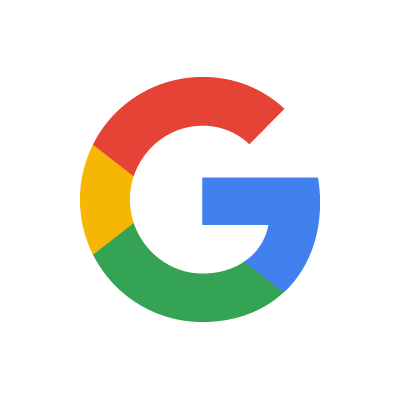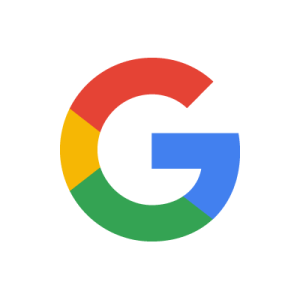what does advertising on google cost


what does advertising on google cost Are you ready to take your business to new heights with advertising on Google? If so, you’re probably wondering about the cost. Well, hold on tight as we dive into the intriguing world of Google advertising costs and unravel this mystery for you.
So, what does advertising on Google cost? The answer isn’t as simple as one might think. Unlike traditional advertising methods, Google offers a flexible pricing structure that allows businesses of all sizes to participate. You have control over your budget and can spend as much or as little as you want.
Google Ads operates on a pay-per-click (PPC) model, where you only pay when someone clicks on your ad. The cost per click (CPC) varies depending on factors such as keyword competitiveness, ad quality, and your bid. Highly competitive keywords tend to have higher CPCs, while niche or long-tail keywords are often more affordable.
To determine your advertising budget, it’s crucial to understand how Google calculates costs. Keyword research plays a vital role here. By selecting relevant keywords specific to your business, you can attract potential customers who are actively searching for products or services like yours. This targeted approach ensures that your ad spend is allocated efficiently.
Quality Score also influences your costs. Google evaluates the relevance and quality of your ads and landing page to determine your Quality Score. Higher scores result in lower CPCs and better ad positions. This means that investing in compelling ad copy, relevant keywords, and user-friendly landing pages not only improves your performance but also saves you money.
Additionally, Google offers various bidding strategies tailored to different advertising goals. Whether you prioritize maximizing clicks, conversions, or maintaining a specific average daily budget, you can choose a strategy that aligns with your objectives. This flexibility empowers you to optimize your campaigns based on performance metrics that matter most to your business.
advertising on Google comes with a unique cost structure that emphasizes flexibility and customization. The cost of advertising on Google depends on factors such as keyword competitiveness, Quality Score, and bidding strategy. By conducting thorough keyword research, optimizing your ads and landing pages, and selecting the right bidding strategy, you can make the most out of your advertising budget and achieve remarkable results.
So, are you ready to unlock the full potential of Google advertising and propel your business to new heights? Dive in today and witness the amazement it can bring to your marketing efforts!
Unveiling the Price Tag: Revealing the True Cost of Advertising on Google
Have you ever wondered how much it really costs to advertise on Google? Well, get ready to have your curiosity satisfied as we delve into the depths of this topic. In this article, we will uncover the true cost of advertising on Google and explore the various factors that come into play.
When it comes to advertising on Google, the cost can vary significantly depending on multiple factors. One crucial factor is the bidding system used in Google Ads. Essentially, advertisers bid on keywords relevant to their business, and the highest bidder gets their ad displayed. This means that popular keywords with high competition will generally have a higher cost per click (CPC).
The quality of your ad also plays a significant role in determining its cost. Google rewards well-crafted, relevant, and engaging ads by giving them a higher Quality Score. Ads with a higher Quality Score tend to have lower CPCs and better ad placements. So, investing time and effort in creating compelling ad copy and optimizing landing pages can help reduce costs.
Another factor to consider is the industry you’re in. Some industries, such as finance and insurance, are highly competitive, leading to higher advertising costs. On the other hand, niche markets may have lower competition and therefore lower costs. Understanding the dynamics of your industry can give you valuable insights into the potential costs involved.
Geographical targeting is also crucial when it comes to cost. Advertisers can choose specific locations to target their ads, and the competition and demand in those areas can affect pricing. For instance, advertising in major cities or densely populated areas may be more expensive compared to smaller towns or rural regions.
Furthermore, the timing of your ads can impact costs. Certain times of the year, such as holiday seasons or peak shopping periods, tend to have higher demand, resulting in increased costs. Advertisers should consider these seasonal fluctuations and plan their campaigns accordingly.
the true cost of advertising on Google depends on various factors, including bidding strategies, ad quality, industry competitiveness, geographical targeting, and timing. By understanding these factors and strategically optimizing your campaigns, you can navigate the Google advertising landscape more effectively and achieve better results within your budget. So, get ready to unveil the price tag and embark on a successful advertising journey with Google!
From Penny Pinching to Big Spends: A Breakdown of Google Advertising Costs
Are you a business owner looking to expand your online presence and reach a wider audience? If so, you’ve probably considered advertising on Google. But before diving in, it’s important to understand the costs associated with Google advertising. In this article, we’ll break down the different factors that influence Google advertising costs, from penny pinching budgets to big spends.
First and foremost, it’s crucial to know that Google advertising operates on a pay-per-click (PPC) model. This means you only pay when someone clicks on your ad. The cost per click (CPC) varies depending on several factors, such as keyword competitiveness and quality score. Highly competitive keywords in popular industries tend to have higher CPCs, while less competitive keywords can be more affordable.
Additionally, your budget plays a significant role in determining your Google advertising costs. Google allows you to set a daily budget for your campaigns, ensuring that you have control over how much you spend each day. Whether you’re a small business on a tight budget or a larger enterprise with more financial resources, there’s an opportunity to advertise on Google within your means.
Furthermore, ad positioning impacts your costs. Google assigns ad positions based on an auction system, where advertisers compete for the top spots. Generally, ads with higher bids and better ad relevance will secure more prominent placements. While aiming for the top position may seem tempting, it often comes at a higher cost. Finding the right balance between visibility and budget is crucial for maximizing your advertising investment.
It’s also worth mentioning that the industry you operate in can influence the costs of Google advertising. Some industries are highly competitive, driving up the prices for relevant keywords. For example, if you’re in the insurance or finance industry, you can expect higher CPCs compared to less competitive niches.
understanding the breakdown of Google advertising costs is essential for any business considering online advertising. By familiarizing yourself with factors like CPC, budgeting, ad positioning, and industry competitiveness, you can make informed decisions that align with your goals and budget. So whether you’re pinching pennies or ready to make big spends, Google advertising offers a range of opportunities to promote your business effectively.
The Hidden Factors Impacting Your Wallet: Understanding Pricing for Google Ads
Are you considering using Google Ads to boost your online presence and drive more traffic to your website? It’s a smart move, but before you dive in, it’s crucial to understand the factors that can impact your wallet when it comes to pricing for Google Ads. In this article, we’ll explore the hidden elements that affect how much you’ll spend on your ad campaigns, giving you valuable insights to optimize your budget effectively.
One of the key factors that determine the cost of Google Ads is keyword competition. When multiple advertisers bid on the same keywords you’re targeting, the price naturally goes up. So, if you’re aiming for highly competitive keywords, be prepared to pay a premium. On the other hand, less competitive keywords can be more cost-effective, providing an opportunity to reach your target audience without breaking the bank.
Quality Score is another critical factor affecting your ad pricing. Google values user experience, so they reward ads that are highly relevant and provide value to searchers. Ads with higher Quality Scores often enjoy lower costs per click. To improve your Quality Score, focus on creating compelling ad copy and landing pages that align closely with your chosen keywords. A higher Quality Score not only reduces your expenses but also increases the visibility of your ads.
Ad format plays a role in pricing as well. Google offers various ad formats such as text ads, display ads, and video ads. Each format has its own pricing structure, and the popularity and demand for specific formats can impact their cost. For example, video ads tend to have higher production costs but can be incredibly engaging and effective.
Geographic targeting is yet another aspect to consider. Different regions may have varying levels of competition and purchasing power, which can influence the price of your ads. Targeting specific locations where your audience is more likely to convert can help you maximize the return on your advertising investment.
understanding the hidden factors impacting pricing for Google Ads is crucial for effective budget management. By considering keyword competition, improving your Quality Score, choosing appropriate ad formats, and optimizing geographic targeting, you can make informed decisions that align with your advertising goals while minimizing costs. Remember, continuous monitoring and fine-tuning of your campaigns are essential to achieving optimal results within your budget.
Budgeting Wisely: How Small Businesses Can Navigate Google Advertising Costs
Are you a small business owner looking to maximize your online presence without breaking the bank? Well, you’re in luck! In this article, we’ll explore how small businesses can navigate Google advertising costs and budget wisely to achieve optimal results.
When it comes to online advertising, Google is undoubtedly the powerhouse. It offers a variety of advertising options, such as Google Ads, which allow businesses to reach their target audience effectively. However, the costs associated with running Google ads can quickly add up if not managed carefully.
So, how can small businesses tackle this challenge? The key lies in budgeting wisely. By implementing a few strategies, you can make the most out of your advertising budget and drive meaningful results.
Firstly, it’s crucial to set clear and realistic goals for your Google advertising campaigns. What do you aim to achieve? Is it brand awareness, lead generation, or driving sales? Understanding your objectives will help you allocate your budget more efficiently and focus on the areas that matter most to your business.
Next, take advantage of the targeting options offered by Google Ads. Instead of casting a wide net, narrow down your audience based on demographics, interests, and location. By reaching the right people at the right time, you increase the chances of converting them into customers and avoid wasting your budget on irrelevant clicks.
Another useful tip is to regularly monitor and optimize your campaigns. Keep a close eye on the performance metrics provided by Google Ads, such as click-through rates (CTR) and conversion rates. Identify what’s working and what isn’t, and make necessary adjustments to improve your ROI.
Furthermore, consider employing cost-effective advertising formats, such as Google Display Network and YouTube ads, which can be more affordable compared to search ads. These alternatives provide opportunities to showcase your products or services creatively while staying within your budget.
small businesses can navigate Google advertising costs by budgeting wisely and implementing effective strategies. Set clear goals, target your audience carefully, monitor performance metrics, and explore cost-effective advertising formats. By doing so, you’ll make the most out of your advertising budget and achieve significant results for your business.
